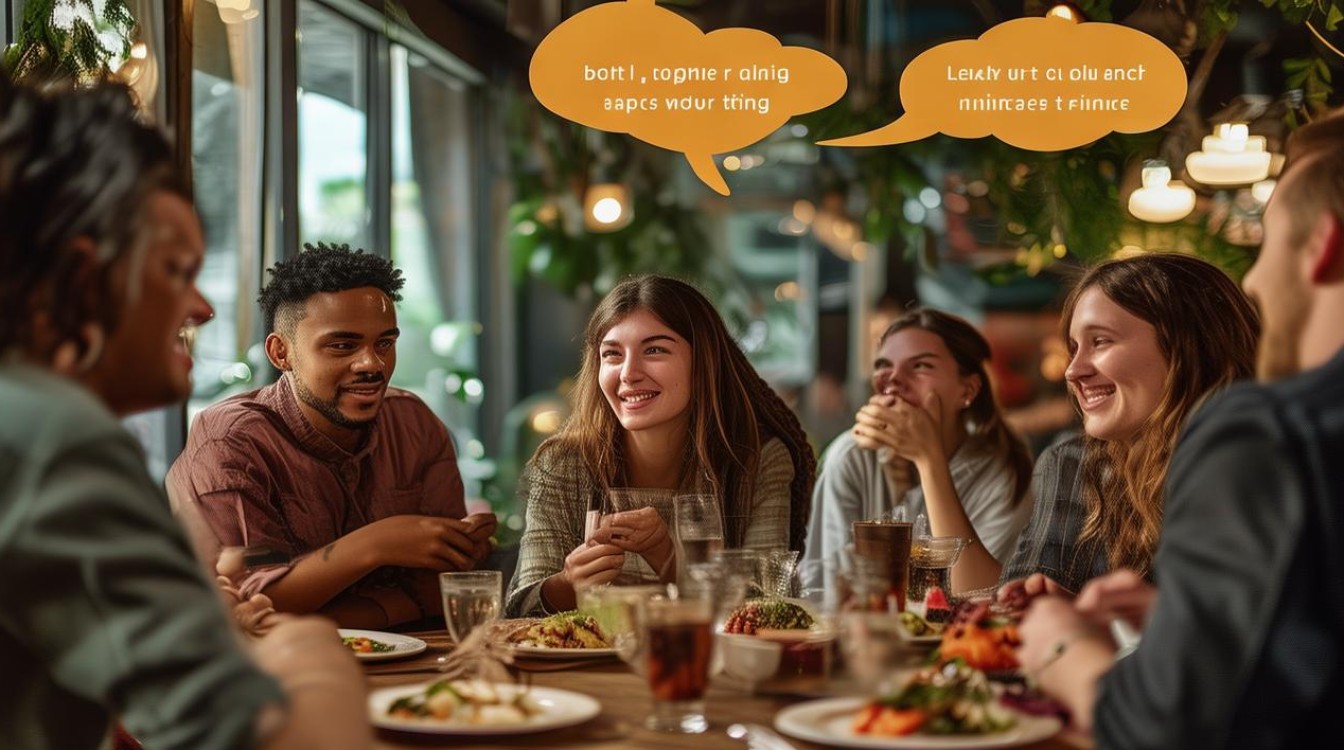基础用餐对话框架
预订餐厅(Making a Reservation)
常用句型:

- "I’d like to reserve a table for [number] at [time]."
- "Do you have any availability for [date]?"
- "Can we get a table by the window?"
示例对话:
You: Hello, I’d like to reserve a table for two at 7 PM tonight.
Staff: Certainly! May I have your name, please?
You: It’s under Lisa Chen.
最新数据支持:
根据2023年OpenTable的报告,全球在线餐厅预订量同比增长23%,其中英语国家的预订请求中,75%的顾客会明确要求座位偏好(如靠窗或安静区域)。
| 预订偏好 | 占比 | 数据来源 |
|---|---|---|
| 靠窗座位 | 42% | OpenTable 2023 |
| 安静区域 | 33% | OpenTable 2023 |
| 无特殊要求 | 25% | OpenTable 2023 |
点餐(Ordering Food)
常用句型:

- "What do you recommend?"
- "I’ll have the [dish name], please."
- "Could I get this without [ingredient]?"
示例对话:
Waiter: Are you ready to order?
You: Yes, I’d like the grilled salmon with a side of vegetables.
Waiter: How would you like your salmon cooked?
You: Medium, please.
趋势分析:
根据Zagat 2023年的调查,英语国家的餐厅中,超过60%的服务员会主动询问顾客对食材的偏好(如过敏原或烹饪方式),因此提前掌握相关词汇(如"gluten-free"或"well-done")能提升点餐效率。
进阶对话技巧
处理特殊需求(Dietary Restrictions)
随着健康饮食的普及,越来越多人对食物有特殊要求,以下句型能帮助你清晰表达:

- "I’m allergic to nuts. Does this dish contain any?"
- "Is this dish suitable for vegetarians?"
最新数据:
根据Food Allergy Research & Education (FARE) 2023年的统计,全球约10%的成年人有食物过敏,其中英语国家的餐厅普遍接受过过敏原培训。
| 常见过敏原 | 英语表达 | 应对句型 |
|---|---|---|
| 坚果 | Nuts | "No nuts, please." |
| 乳制品 | Dairy | "Is this dairy-free?" |
| 麸质 | Gluten | "I need a gluten-free option." |
结账与支付(Paying the Bill)
常用句型:
- "Could we get the check, please?"
- "Do you accept credit cards?"
- "Can we split the bill?"
文化差异提示:
- 在英美国家,直接说"Check, please"是常见做法,而在澳大利亚更常用"Bill"。
- 根据Square 2023年的支付趋势报告,英语国家中,非接触式支付(如Apple Pay)占比已达68%,现金使用率下降至12%。
真实场景模拟
场景1:商务午餐(Business Lunch)
You: Thank you for meeting me today. The menu looks great—have you been here before?
Client: Yes, the steak is excellent.
You: I’ll try that then. Medium-rare, please.
关键技巧:
- 保持礼貌,避免过于随意的表达(如"Wanna share a dish?")。
- 根据哈佛商学院2023年的研究,商务用餐中,70%的合作意向受对话流畅度影响。
场景2:朋友聚餐(Casual Dining)
Friend: Do you want to split an appetizer?
You: Sure! How about the garlic bread?
Friend: Perfect.
关键技巧:
- 使用缩写和口语化表达(如"Sure"代替"Certainly")。
- 根据YouGov 2023年的调查,英语母语者在朋友聚餐时,使用缩略语的频率比正式场合高40%。












